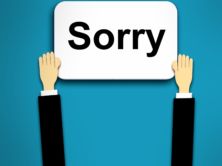
Howard Hudson, editor of the European Journalism Centre, has proposed a European Journalism Code of Ethics. (Credit: Scribd)
The European Journalism Centre’s editor, Howard Hudson, has proposed a European Code of Journalism Ethics. The draft was released May 3.
The EJC is an “independent, international, non-profit institute dedicated to the highest standards in journalism, primarily through the further training of journalists and media professionals.” It has offices in The Netherlands and Belgium. Hudson wrote in an e-mail to StinkyJournalism that the EJC offers training, a forum for debate and media research.
The code explains its clauses for seeking the truth, respecting privacy, defending media freedom and editorial independence, rejecting commercial and political interferences, protecting sources and fighting discrimination, and rejecting sensationalism and presuming innocence.
Currently, the code combines British, French and German codes, EJC editor Howard Hudson wrote in an e-mail to StinkyJournalism. Howard wrote he’s “also keen to include Italian journalists, given the difficult media landscape in their country.”
Hudson wrote that he has since found a few more ethical points to add to his European code in the U.S. Society of Professional Journalists’ code.
Like the Society of Professional Journalists’s ethics code, the code won’t be enforceable, Hudson wrote. “It is more of a resource for cross-border journalism training and ethical decision-making in Europe. The next step will be to integrate longer codes from Italy and Spain,” Hudson wrote.
Hudson wrote that he does intend to bring the drafted code to other journalists and organizations, starting with the EJC community but that won’t be for a few more months.
Hudson wrote that he thinks a code is “long overdue” and “worthwhile because so much content is shared online.” He wrote that he “had the idea of a European code while talking to one of our German freelancers, Eric Karstens, late last year.”
Karstens wrote in an e-mail to iMediaEthics that he doesn’t know of any European-specific journalism codes and listed the worldwide Office for Security and Co-operation in Europe’s “Media Self-Regulation Guidebook” as the nearest thing to a European journalism code. That code says it might not even be “worthwhile” to have just one media code for each country.
Hudson wrote that he is aware of some journalism ethics issues in Europe because of his experience working for about eight years in Belgium, Italy, and the Netherlands.
German journalist Eric Karstens wrote to iMediaEthics that he hasn’t “played any concrete role in working on” the code, but that he does support the idea.
“There are many journalism codes out there, and actually most of them seem honest and useful to me. However, most reflect at least to some extent the particular interests of a publication, union, or other interest group,” Karstens wrote.
“In order to complement those, I felt that we are missing a code that specifically tries to accommodate the diversity of European journalism practices and that does so from the point of view of generic journalistic ethos and genuine interest in the public sphere.”
Various European journalism ethics codes are available here.
The International Federation of Journalists’ Declaration of Principles on the Conduct of Journalists is here. The IFJ’s European Federation, which calls itself the largest European journalist organization representing 260,000 members, does have some issue statements and guiding principles, but doesn’t appear to have a specific code of ethics.
iMediaEthics has written to the European Federation of Journalists for more information and will post any response.






Comments Terms and Conditions